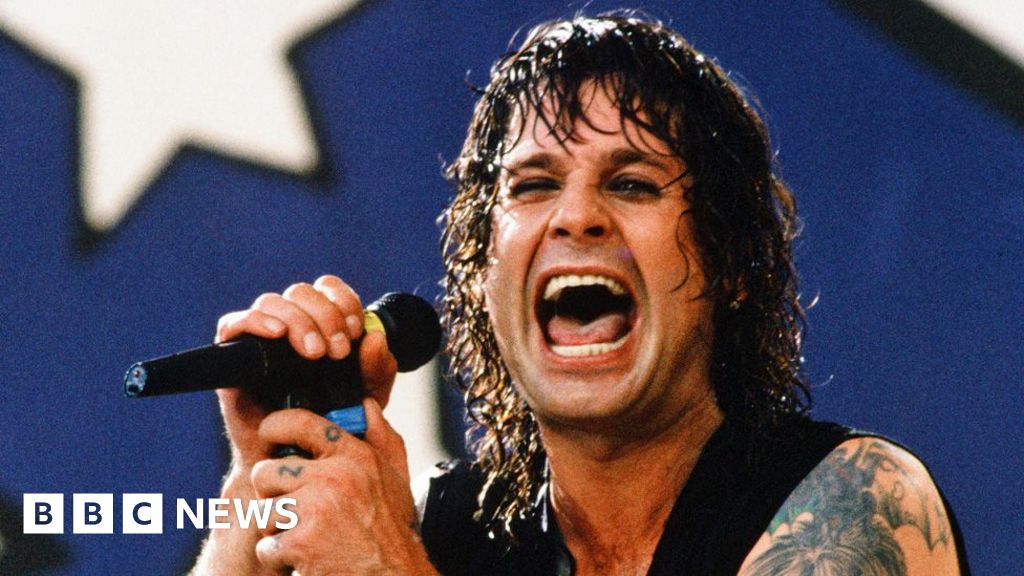
London — Ozzy Osbourne, the iconic frontman of Black Sabbath and one of the most influential figures in the history of rock music, has died at the age of 76.
The man affectionately known around the world as the Prince of Darkness passed away peacefully at his home on 22 July 2025, surrounded by his family. The cause of death has not been formally disclosed, but Osbourne had been battling Parkinson’s disease and other health complications in recent years.
His family released a short statement this morning:
“Our beloved Ozzy passed away peacefully last night. He was a father, husband, and true original. Thank you all for loving him so fiercely.”
The announcement sent shockwaves through the music world, with tributes flooding in from artists, celebrities, and fans across the globe. For many, this marks the end of an era.
A Voice That Defined a Genre
Born John Michael Osbourne on 3 December 1948 in Aston, Birmingham, Ozzy’s rise from working-class obscurity to global superstardom is the stuff of rock legend.
In 1969, he co-founded Black Sabbath, a band that would go on to change the face of music forever. With the dark, heavy riffs of guitarist Tony Iommi and Ozzy’s haunting, unmistakable vocals, Sabbath created a new genre: heavy metal.
Their 1970 debut album, Black Sabbath, was a sonic earthquake. The follow-up, Paranoid, spawned timeless anthems such as “Iron Man,” “War Pigs,” and the title track “Paranoid,” all of which remain cornerstones of rock radio and playlists to this day.
Critics were divided. Parents were horrified. But fans? Fans saw a prophet.
The Solo Journey: Chaos, Comebacks, and “Crazy Train”
After being dismissed from Sabbath in 1979 amid escalating tensions and drug abuse, many thought Ozzy’s career was over.
They couldn’t have been more wrong.
His solo debut, Blizzard of Ozz, exploded onto the scene in 1980 and featured instant classics like “Crazy Train” and “Mr. Crowley.” With the late guitar virtuoso Randy Rhoads by his side, Ozzy cemented his legacy as more than a frontman—he was a phenomenon.
Throughout the ’80s and ’90s, his image grew wilder. The infamous bat-biting incident. The doves. The near-death experiences. The arrests. And through it all, he kept making music that connected across generations.
His voice—fragile, fierce, and oddly human—was the soul of rebellion for millions.
More Than Metal: A Global Icon
Ozzy wasn’t just a musician. He became a household name.
In the early 2000s, he introduced a new side of himself to the world through MTV’s The Osbournes. The reality series chronicled life with wife Sharon and children Jack and Kelly. Fans were stunned: the demonic rockstar was also a bumbling, hilarious, weirdly lovable dad.
The show reintroduced him to an entirely new audience—and showed that behind the eyeliner and chaos was a deeply human man. A survivor.
Health Battles and the Long Goodbye
In later years, Ozzy’s health declined. He was diagnosed with Parkinson’s disease in 2020, and suffered a number of injuries and complications, including spinal surgery that forced him to cancel his long-awaited farewell tour in 2023.
Still, he recorded. Still, he joked. Still, he fought.
In interviews, he remained brutally honest about mortality. “I’m not afraid to die,” he said in one memorable 2023 interview. “I’ve lived ten lives already.”
His final album, Patient Number 9, featured collaborations with Eric Clapton, Jeff Beck, and Tony Iommi—an emotional full-circle moment that saw him creatively energized, despite the failing body.
The World Reacts
The news of Ozzy Osbourne’s death has triggered an outpouring of tributes from across music, entertainment, and politics.
Sir Paul McCartney tweeted:
“Ozzy was a one-of-a-kind. A voice like no other, a heart bigger than the world, and a true British original.”
Metallica issued a joint statement:
“We owe our very existence to Sabbath and to Ozzy. He showed us how to be loud, raw, and real. Rest easy, brother.”
Elton John, a close family friend, said:
“He was chaos and comfort all at once. I loved him dearly.”
Fans around the world gathered in front of the Black Sabbath bench in Birmingham this morning, lighting candles and singing “Paranoid” in unison. The city’s council confirmed it would fly flags at half-mast.
A Legacy Carved in Fire
Ozzy Osbourne wasn’t just the Prince of Darkness—he was the king of resilience. His career spanned more than five decades, 13 albums with Black Sabbath, 13 solo albums, and countless iconic moments.
He influenced every metal act that came after him. His sound and spirit echo in the music of Metallica, Slipknot, Korn, Ghost, and even pop stars like Post Malone and Billie Eilish, who cited Ozzy as a creative hero.
But perhaps Ozzy’s greatest legacy was not musical—it was emotional.
He showed the world that you could be broken and brilliant. Wild and wise. Scary and soft. He taught fans that it was okay to be different, to struggle, to scream. And above all, to survive.
The Final Note
In 2017, during the final Black Sabbath performance in Birmingham, Ozzy stood on stage as the final notes of “Paranoid” echoed through the night.
He looked into the crowd—tens of thousands of faces lit by tears and fire—and said, “I fucking love you!”
Today, the world echoes that back.
We fucking love you, Ozzy.
Rest in power.
Rest in noise.
Rest in peace.

Leave a Reply